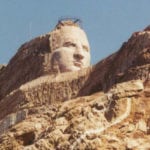 History
History  History
History  Weird Stuff
Weird Stuff 10 Wacky Conspiracy Theories You Will Need to Sit Down For
 Movies and TV
Movies and TV 10 Weird Ways That TV Shows Were Censored
 Our World
Our World 10 Places with Geological Features That Shouldn’t Exist
 Crime
Crime 10 Dark Details of the “Bodies in the Barrels” Murders
 Animals
Animals The Animal Kingdom’s 10 Greatest Dance Moves
 Movies and TV
Movies and TV 10 Box Office Bombs That We Should Have Predicted in 2025
 History
History 10 Extreme Laws That Tried to Engineer Society
 History
History 10 “Modern” Problems with Surprising Historical Analogs
 Health
Health 10 Everyday Activities That Secretly Alter Consciousness
 History
History 10 Dirty Government Secrets Revealed by Declassified Files
 Weird Stuff
Weird Stuff 10 Wacky Conspiracy Theories You Will Need to Sit Down For
 Movies and TV
Movies and TV 10 Weird Ways That TV Shows Were Censored
Who's Behind Listverse?

Jamie Frater
Head Editor
Jamie founded Listverse due to an insatiable desire to share fascinating, obscure, and bizarre facts. He has been a guest speaker on numerous national radio and television stations and is a five time published author.
More About Us Our World
Our World 10 Places with Geological Features That Shouldn’t Exist
 Crime
Crime 10 Dark Details of the “Bodies in the Barrels” Murders
 Animals
Animals The Animal Kingdom’s 10 Greatest Dance Moves
 Movies and TV
Movies and TV 10 Box Office Bombs That We Should Have Predicted in 2025
 History
History 10 Extreme Laws That Tried to Engineer Society
 History
History 10 “Modern” Problems with Surprising Historical Analogs
 Health
Health 10 Everyday Activities That Secretly Alter Consciousness
10 Mysterious Disappearances From The Wilds Of North America
Throughout much of North America, large swaths of land are still untamed and unsettled. Hundreds of millions of acres are protected in the wilds of the United States and Canada. Hikers, hunters, and tourists visit these lands every year, but not all of them leave alive.
Many have died and went missing in the wilderness over the years, often with little or no explanation. This list takes a look at some of these enduring mysteries—and if you have any theories on these cases, mention them in the comments below.
10 Aaron Hedges
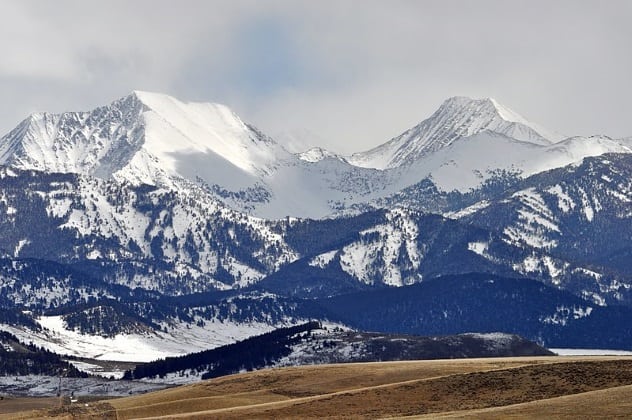
The Crazy Mountains of Montana have long been seen as a harsh, rugged range of wilderness with a sense of mystery. Aaron Joseph Hodges, 38 years old, ventured into the Crazies on an elk hunt in September 2014, but he separated from his friends and wandered off-trail. He told the rest of his group that he planned to head north to a camp they set up the year before. Radio silence followed, and three days later, his wife reported him missing to Sweet Grass County law enforcement.
Due to the lapse of time between his vanishing and the alerting of authorities, workers rushed to find the missing hunter. Around 0.6 meters (2 ft) of snow began to fall, complicating the search and reducing Hedges’s chance of survival. Despite the efforts of 59 searchers, 20 dog teams, and several rescue helicopters, Hedges could not be found; only his boots, water bladder, and two attempts to start a fire were discovered. In June 2015, a Wyoming butcher walking in the woods near his daughter’s ranch came upon some of Hedges’s gear—his bow, hunting license, clothes, and a well-weathered backpack. The following summer, Hedges’s remains were discovered and identified 0.8 kilometers (0.5 mi) from where his equipment was strewn about. Although authorities have closed his case, the intrigue of his story persisted as more details were pieced together.
Questions still linger around Aaron Hedges’s final days in the Crazy Mountains. His remains and gear were found on a mountainside opposite of the one originally searched, around 24 kilometers (15 mi) away from the camp Hedges was heading toward. The shedding of his boots and clothes made his trek even more improbable as he traversed the difficult and snowy terrain off the main trails. Tragically, Aaron was close to safety and within sight of the ranch his remains were found near.[1] Disorientation and hypothermia may have been the cause of his behavior and death, but it is indisputable that some aspects of Aaron Hedges’s disappearance are still hard to explain.
9 Bart Schleyer

Few can claim to have left such a lasting legacy as Bart Schleyer. Many words could describe the 49-year-old outdoorsman, but his friends from around the world often noted his strength, confidence, and his vast knowledge of the outdoors. Schleyer was a jack of all trades, making wildlife research his main profession while also delving into taxidermy, photography, writing, and art. His passion, though, was hunting. He often spent weeks in the wilderness while on a hunt, simply enjoying the world around him. From African savannas to Siberian forests, Schleyer had roamed and hunted around the globe until his curious death in the Yukon in 2004.
On September 14, a charter plane dropped him off for a two-week moose hunt in Canada’s Yukon backcountry. When he did not return for his departure flight, some of Schleyer’s friends joined the Royal Canadian Mounted Police’s search for him. Investigators were able to put together most of his final hours with what little they found. It is believed he quickly set up camp before eating and paddling 0.8 kilometers (0.5 mi) downriver to the spot he planned to call moose from. They found a makeshift seat on top of his gear and a bloody face mask there, with his bow still leaned against a tree nearby. This soon led the search to a handful of bones, which were all that remained of Schleyer. Bear and wolf scat in the area confirmed scavengers came after his death.
However, with the evidence they had, officials could not confirm a predator actually killed him. Most agree he likely met his end during a bear attack after inadvertently attracting one with his calls. Some believe he died of natural causes in the wilderness he so dearly loved. It is clear, though, that there were no signs of a struggle. Even the soft moss under his remains appeared undisturbed. His bones were not cached in the same pattern as many bear attack victims. His camp, which would also likely have been scavenged by the same hungry grizzly, looked untouched. What little clothing was found largely lacked the bloody stains typical of maulings.[2]
Schleyer was also in good health, having recently finished a hunting trip that required many miles of hiking. Despite the lack of details surrounding his death, Schleyer’s family and friends find solace knowing that his final days were spent in the outdoors—likely as the happiest man on Earth.
8 David Blake
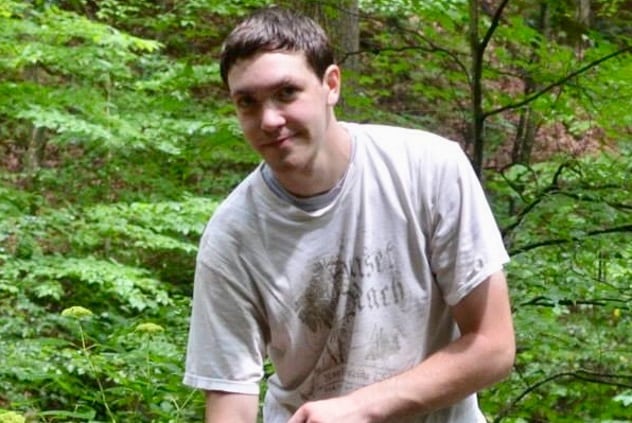
David Blake’s disappearance in Georgia’s Kennesaw Mountain National Battlefield Park remains a mystery short on both clues and answers. Covering almost 3,000 acres and featuring many miles of hiking trails, the popular park’s significance is rooted in its Native American culture and Civil War history. On March 7, 2018, Blake ventured out for a hike in the park like he had done many times before. He has not been seen since, leaving his mother with a simple, “I love ya, Mom. See ya later.”
Blake never showed up to work the next day, although his phone was used to send a few messages earlier that morning. His family soon reported him missing, launching law enforcement’s initial search and investigation. Blake’s Nissan Sentra was found in an overflow lot near Kennesaw Mountain with his keys and some gear inside. Several search dogs also followed a scent down roads along the mountain, leading to the idea that Blake didn’t hike up the trails. Days of searching on the ground and in the air, however, would not turn up Blake himself. Although the official search lasted only a week, Blake’s family would continue with their own search for answers.
The family hired a private investigator to reexamine the case and hone in on particular clues. They realized Blake’s backpack had yet to be found, raising the possibility that it was still with him.[3] David’s brother Stuart also started a GoFundMe page which raised over $17,000 to help fund their continuing search. So far, there have been no definitive signs of a crime, nor was Blake involved in any unlawful activities. This information, along with a lack of high-risk behaviors in his past, leaves Blake’s family hopeful that he is still alive.
7 Drake Kramer

As February 2015 rolled around, Drake Kramer had a bright future ahead. He had a job at a local hardware store and was enrolled at the University of Texas to study geology. Although he was only 21, Kramer was an experienced hiker with a passion for the outdoors. He often posted photos from his travels on Facebook and spoke of future trips to far-flung places.
However, Kramer’s parents were surprised when their son said he made a sudden drive to Grand Canyon National Park. Although he had been there several times before, his family noted he did not usually travel alone. He stayed only one night at Bright Angel Lodge near the well-traveled South Rim area of the canyon. The next morning, a series of cryptic texts would leave his family even more puzzled.
Emotional messages sent to family members on February 2 led to concern when Kramer told his father that he “needed to be back with Mother Earth and set his soul free.” Worried their son may be suicidal, Kramer’s parents reported him missing and tried to retrace his steps. His friends claimed that before he left, Kramer had been living with a coworker. The family also found out their son went to California before going to the Grand Canyon. In all, Kramer drove over 1,600 kilometers (1,000 mi) in a single weekend. His car would be found later, still parked at the Bright Angel Lodge.
The search for Drake Kramer soon kicked off with authorities combing the rugged terrain and forests off the beaten paths. Investigating the spots he had been to in the past turned up no trace of Kramer, either. Six days of exhaustive search efforts were called off with only his car being found. Kramer’s parents were unsure if their son committed suicide, though. Only days before, his father noted that Kramer “was in good spirits.” A letter left by their son read, “I truly love and cherish every soul I met and will meet in my lifetime. Love, Drake Lyons Kramer.”[4] He remains missing, with his family still looking for him.
6 Victor Dwight ‘J.R.’ Shoemaker
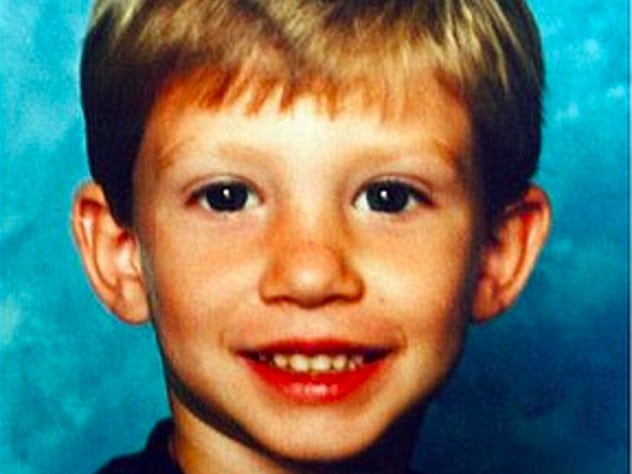
West Virginia is a state full of mysteries, with Victor Dwight Shoemaker’s disappearance being one of many unsolved cases in the Mountain State. Victor, or “J.R.” as many called him, was away from home visiting his grandfather in May 1994. The five-year-old boy roamed the familiar woods near his grandfather’s trailer on this visit with his two cousins, aged eight and nine. The three boys were playing when Victor said he was hungry and headed back toward the mobile home. The cousins returned without him, sparking a search for him within an hour.
The West Virginia State Police and over 340 volunteers began a five-day hunt for Victor. Frigid, rainy weather dampened their hopes of finding him alive. Local National Guard and Army Reserve units spent five more months doing searches on the weekends. Law enforcement focused their efforts on a 10-square-kilometer (4 mi2) area, thinking that was the farthest the young boy could go.
Mountainside homes, trails, and even hundreds of dead logs were all combed for clues. Victor’s cousins talked with police but could give little insight to his fate. Officials wondered if Victor was abducted after a search dog kept its nose up to the air following a scent. Reports also came in regarding a suspicious dark truck in the area. Neither clues led to any concrete answers on what happened to Victor.
No named suspects, arrests, or charges have ever been made in Victor’s case. No signs of crime or family involvement have been found. Even more tragic, there has been no trace of young Victor since his disappearance on May 1, 1994. His parents believe their son may still be alive but that his cousins may know more than they admit. They have not talked with that side of their family since Victor vanished. In that time, they have left his room largely unchanged, waiting for the day Victor may finally come home.[5]
5 Randy Morgenson

From a young age, Randy Morgenson was destined to be an outdoorsman. Raised by his father in Yosemite National Park, as a child he often helped famed photographer Ansel Adams. After joining the Peace Corps, Randy took up mountain climbing while in India. Eventually, he went to the Sierra Nevada Mountains to become a seasonal ranger. The job was rewarding but certainly not easy or profitable. From December to October, 14 rangers were tasked with protecting 3,500 square kilometers (1,350 mi2) of backcountry. Many in the ragtag group were close after serving together for years, and they noticed when a troubled Randy Morgenson returned to the job in 1996.
Randy’s friends knew his marriage was rocky after an affair. He also seemed burned out after 28 years of work in the backcountry. “You know, after all these years of being a ranger, I wonder if it has been worth it,” he told one colleague. His low spirits didn’t cause much worry until July 24, after days of radio silence from Randy. His coworkers quickly began a weeklong search, but they found no sign of him. Authorities were stuck with what clues he’d left behind.
At Randy’s remote station, a handwritten note said he’d left for a patrol. Divorce papers sat unsigned on his desk, as if he hoped to make amends with his wife. The revolver he rarely carried was still there as well. Randy’s car was parked in the spot where he’d left it months before. His wife in Arizona also received a letter from him, postmarked two days after he disappeared. It is unclear how Randy sent the letter if he was in the backcountry with no postal service. In 2001, five years after he vanished, his remains were found in a gorge under a waterfall. Atop the waterfall was Randy’s radio, which he had turned on. For many, these discoveries raised even more questions.[6]
Eric Blehm wrote The Last Season, which chronicles Randy’s last season in the Sierras. He wonders if, to right some of his wrongs, Randy made his death appear accidental so that his wife would get a $100,000 government benefit. Officials maintain that the ranger was injured and fell into the ravine, being hidden by the terrain and the elements for years. It is likely that, with the poor state of Randy’s remains, we may never know the full story of his final patrol.
4 DeOrr Kunz
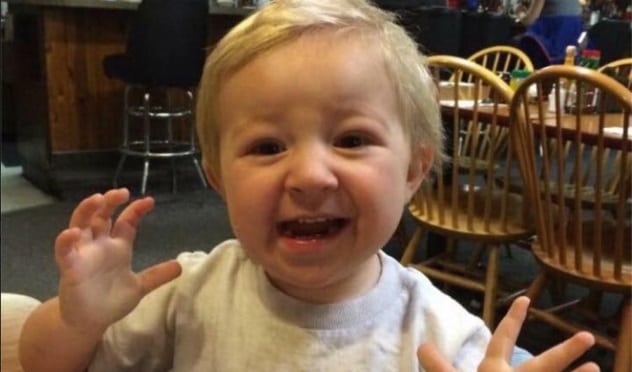
July 10, 2015, seemed to be just another day in Leadore, Idaho. Then, around 2:30 PM, a 911 call came in from the nearby Timber Creek Campground. A boy, aged two, had gone missing while camping with his family. When police arrived, they found the family of DeOrr Kunz Jr. struggling to make sense of the situation. However, young DeOrr himself was nowhere in sight. After three years of investigations and searches, it is still not clear what exactly happened that day in the backwoods of Idaho.
Vernal DeOrr Kunz Sr. and Jessica Mitchell brought their young son along with them on a camping trip in the remote Salmon National Forest. Jessica’s grandfather, Bob Walton, also came with his friend Isaac Reinwand. As DeOrr’s parents wandered off to go fishing, they left him with Bob. It is unknown if he dozed off or just lost track of DeOrr, but when the parents returned, their son was gone. By that evening, searches were underway in the campsite and a nearby creek. No trace of him was found. With time, officials narrowed their focus down to a few theories to explain DeOrr’s disappearance.
An animal attack was quickly ruled out, since no shredded or bloody clothing turned up. DeOrr’s parents wondered if he was taken, but police doubt that an abductor would go unnoticed. The family, along with Isaac, were the only people in the campgrounds that day. Eventually, Vernal and Jessica were named as suspects in the case. Authorities took note of changes in their stories, and eyewitnesses who saw the group on their trip could not back up their claims. Both failed a number of polygraphs, often in the 99th percentile. Over the years, even hired detectives would stop working with the family.
Although the case got nationwide attention, there have been few updates since 2015. Philip Klein, an investigator once hired by the family, stated in 2016 that Jessica knows where DeOrr’s body is.[7] He also revealed that a cadaver dog hit on five spots near the camp. The jacket DeOrr supposedly wore the day he vanished was later found in the Kunzes’ old apartment as well. Many, three years later, continue to look for DeOrr and bring attention to his unsolved case.
3 Laura Bradbury
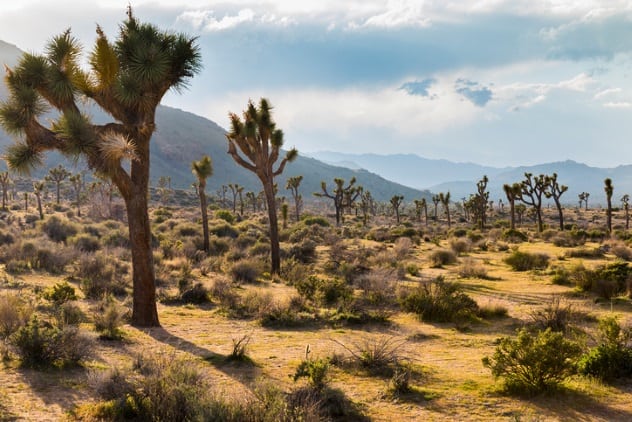
For Mike and Patty Bradbury, Joshua Tree National Park was a haven where they could get away from the rest of the world. On October 18, 1984, as they set up their camp, their three children—Travis, Laura, and Emily—played close by. In a few moments’ time, their annual camping trip turned into a nightmare when Laura vanished. Park rangers, local sheriffs, and volunteers would soon devote countless hours to tracking down the missing three-year-old. Though her family would get some answers over time, the puzzle of what happened to Laura is far from solved.
Police led a three-day search for Laura before coming to the conclusion that she had been kidnapped from the area. Dog teams followed her scent and tracks to a road nearby, and reports would come in of a suspicious man in a blue van. Little else would turn up in the hunt for Laura, despite the efforts of her family and law enforcement. Skull fragments found in 1986 1.6 kilometers (1 mi) from the Indian Cove campsite proved to be Laura’s after a number of DNA tests. Mike believes the skull was brought back to the area, since it was searched two years earlier.
Over the years, Mike took notice of the strange handling of his daughter’s disappearance by some groups and agencies. He wonders why it took a few days before police reported Laura kidnapped. Three people came forward with details on Laura’s abductors in 1985. All three were kidnapped and killed months later. Two of them were found buried near a green sweatshirt just like Laura’s. Police discounted their claims and don’t believe the clothing belonged to Laura, although her father disagrees. He also does not understand how, if the bones found in 1986 were Laura’s, the San Bernadino coroner could not release a death certificate, even in 2010. Mike has hailed the efforts by many to find Laura but has often doubted local law enforcement and their findings.[8]
The toll of her disappearance lingered as time moved on for the Bradburys. Many worried for Travis and Emily, as both struggled growing up in the shadow of their missing sister. Patty would spend years writing letters to her missing daughter before passing away in 2001. Mike, in 2010, wrote a book describing his own hunt for answers in Laura’s case. Thirty-four years after Laura vanished, her abduction is still unsolved, and her family still longs for closure.
2 Matthew Greene
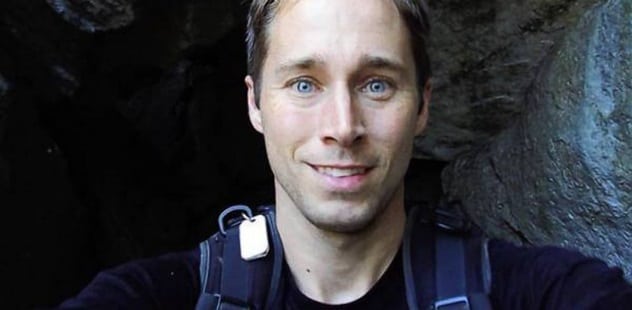
As California’s Mammoth Lakes area got its first snowfall in October 2013, hope began to fade in the search for Matthew Greene. The 39-year-old teacher had vanished three months earlier while climbing and visiting friends in the region. Taking only a day’s worth of gear with him, he left everything else behind. Years have passed since Matthew’s disappearance, and with no trace of him, it is as if he walked off the face of the Earth.
Matthew Greene always needed adventure to get away from the routines of life. He found his escape in the Boy Scouts, then the Peace Corps, and, later on life, through road trips. He planned to spend a few weeks in the summer of 2013 with his friends John and Jill Greco, camping and climbing near Mammoth Lakes. Matthew hoped to move on to Colorado with the Grecos, but he was delayed when his car needed some repairs. On July 16, after running a few errands, he contacted his parents and friends for the last time. They did not know what his plans were, but concerns grew as time passed without word from Matthew. A campground manager called the police to inspect Matthew’s camp, which was still orderly. Although his car was now fixed, he never picked it up.
These findings led Matthew’s loved ones to file a missing persons report—13 days after they’d last heard from him. Finding Matthew was difficult from the start. His phone, now turned off or dead, could not be tracked. Without a car, he could have walked, hitchhiked, or taken a shuttle to a nearby trail. If he got a ride with someone, he could be anywhere. However, Matthew had a habit of adding pages torn from guidebooks to his own notes before climbing. The missing pages pointed to Mount Ritter, a peak in a jagged group of mountains known as the Minarets.[9] A formal search could not be launched without more information, but teams were still sent to the area.
The 231,533 acres of wilderness proved too vast to yield any answers. In 2014, others who had camped near Matthew said they ran into him before he went missing, but they did not know where he was headed. No evidence in his case suggests suicide, foul play, or an animal attack, either. Although Matthew most likely had an accident while climbing the Minarets, he has yet to be found almost five years later.
1 The Mathias Group
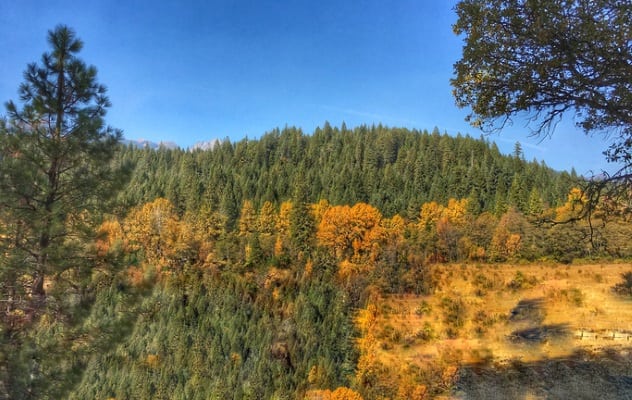
On the night of February 24, 1978, after UC Davis ended their game with Chico State, five young men piled into a car and headed home. They had a 80-kilometer (50 mi) drive back to Yuba City, California. They ended up on a desolate mountain road, far off their route, in the Plumas National Forest. When the men did not return home, their parents knew something was wrong.
The media would call them the “Yuba City Boys,” but they were not really boys. They ranged in age from 24 to 32, and they all lived structured lives with their families. Bill Sterling, Jack Madruga, and Ted Weiher were deemed to be “slow learners.” Jack Huett was more mentally handicapped than the others. Gary Mathias, while in the Army, reportedly struggled with drugs and was treated for schizophrenia. They were, according to one mother, “just nice friendly boys who went to games together and went home.”
Their car was found four days later miles up the bumpy mountain road, without any mud stains, dents, or damage. Punishing snowfall hindered the search for the men, and nothing was found of them until June 1978. Weiher was discovered in an abandoned trailer 31 kilometers (19 mi) away, shoeless and wrapped in eight sheets. It was determined that he’d lost almost half his body weight over eight to 13 weeks before succumbing to hunger and the elements. Sterling, Madruga, and Huett’s remains were soon found near the trailer. Gary Mathias, to this day, is still missing, with only his shoes left behind in the trailer. Some items found in the search, such as a gold watch and a lighter, did not belong to any of the men.
None of the men were familiar with the road or area, and it is unclear why they were there to begin with. The car, which still ran and had fuel, was inexplicably deserted by the group, too. Somehow, they walked miles up the snowy road in the dark wearing only their light clothes. They never built a fire for warmth, even though they had matches, books, and wood furniture to use and burn. They never used a propane tank outside, and they ate only a portion of the trailer’s stored food. Authorities doubt there was foul play but struggle to explain the young men’s actions.[10] If they were afraid or running from something, no one knows what it could be.
J.D. Stone is a college student living in rural Arkansas. He is also a photographer and a writer who loves spending time in the great outdoors. To see some of his other work, you can follow him on Instagram @dillonstone.
Read about more unexplained disappearances on 10 Unsettling Disappearances In The Age Of Information and 10 Mysterious Disappearances With Bizarre Clues.







